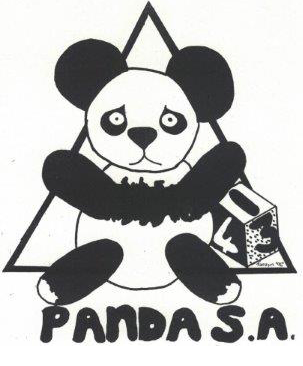25 YEARS OF PANDA
PANDA...THE BEGINNING
After my return to South Africa in 1991, I started lobbying for the formation of such an organisation among our esteemed colleagues. The idea was generally strongly supported, but many warned me that it would not come to pass, because it had been tried before. It appears that at that time there were many individuals who did not really endorse such an association.
In 1994 the first informal meeting was held at the SAPA congress at the Karos Hotel, Kruger National Park. In 1995 a steering committee was formed who included myself, Prof PM Leary, Dr C Adams, Prof JF Schoeman, Dr AC Crutchley, Dr L Jacklin, Dr J Rodda, DR D Griessel (title current at that time). We sent a questionnaire to all health professionals we thought might be interested. Fifty questionnaires were sent out and 41 replies were received. The respondents comprised of 13 paediatricians, 11 developmentalists, 6 neurologists, 4 medical officers, three geneticists, 2 child psychiatrists and 3 senior registrars. The main objectives for the association at that time were networking, education, research collaboration, dissemination of up to date information, data and guidelines, while also improving standards of training and care.

During this time I drafted the first constitution (it still stands although it has been amended a few times) which was endorsed by the committee. I also asked my 10-year old niece to design a logo. It comprised of a panda, the symbol of the association, a triangle symbolising physical, mental and emotional wellbeing (or the interplay between child, parent and environment) and a block symbolizing assessments and development. The logo was later refined by a professional designer.
The name, which was an abbreviation of the full name of the association, was suggested by Dr M Pretorius of Tygerberg, and was chosen from 16 suggestions proposed by our colleagues.
Inauguration
So it decided to have the inauguration meeting at the SAPA biannual meeting in Bloemfontein in September 1996. At that meeting the following agenda was approved:
- 1. Accepting the principle of the formation of such an organisation (unanimously accepted).
- 2. Acceptance of the name, logo and constitution (unanimous)
- 3. Election of the first Executive Committee
- 4. Discussion of follow-up activities
- 5. Membership fees
The overseas invited speaker for our inauguration was Dr J Keith Brown, a consultant neurologist from the Royal Hospital for Sick Kids in Edinburgh, Scotland. He received the first honorary membership from PANDA in recognition for his support of this fledgling association.
The next very exciting activity was the first PANDA INTERBNATIONAL MEETING which was held In Cape Town 14-15 March 1997 and was arranged by Prof M Leary who was a member of the ICNA Board at the time. This was very exciting meeting and we hosted some of the biggest “names” in child neurology. It was truly the kick start of our association and also the first opportunity to become recognised by the international community.
And the rest, as they say, is history! I am incredibly proud of what PANDA has achieved since then, the way it developed and expanded and the impressive strides made in our professional and training. In retrospect it was all so worthwhile!
Prof André Venter